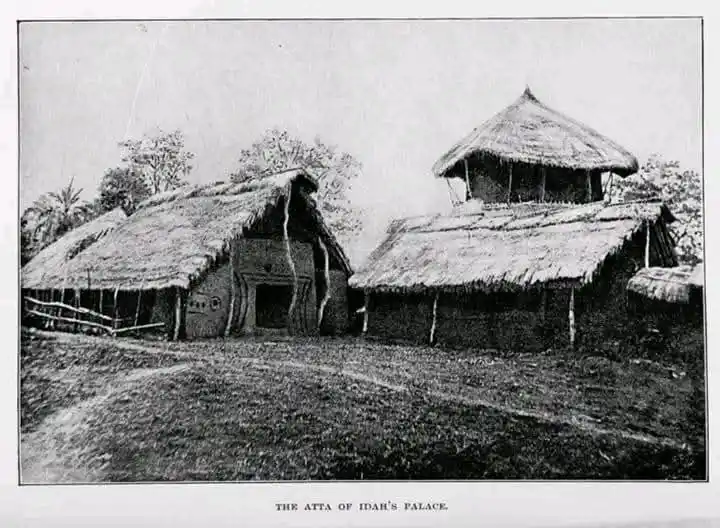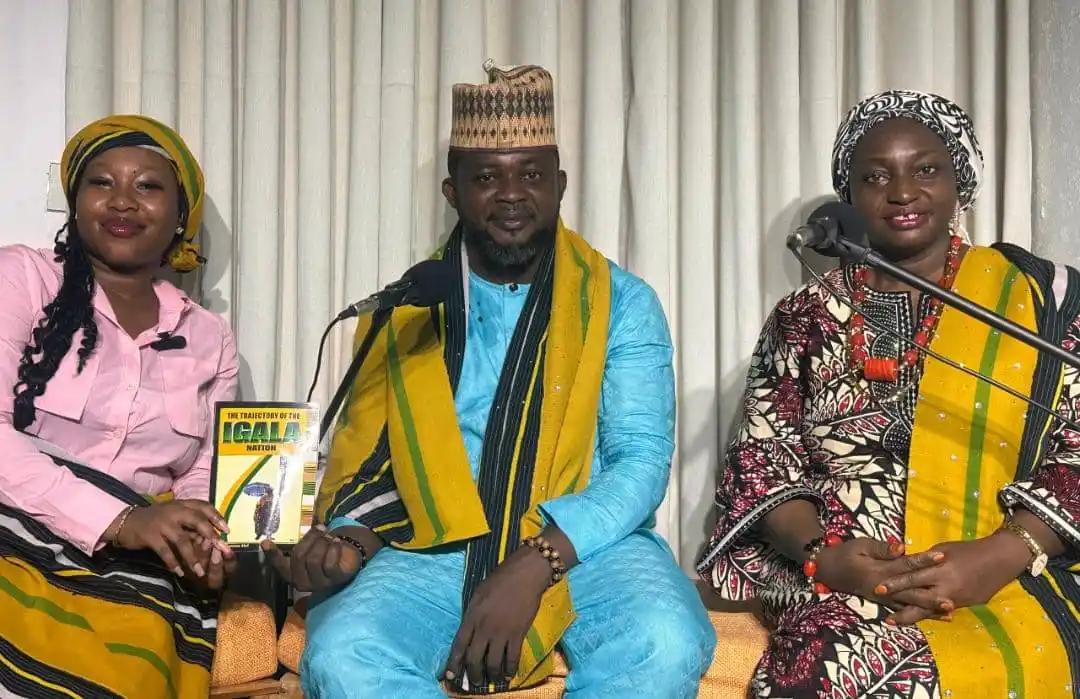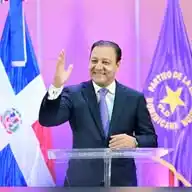
Comrade Enemona Abel Ellah
424 subscribers
About Comrade Enemona Abel Ellah
Histories, Historic events and facts for the way forward. https://www.tiktok.com/@abellahcity22?_t=8l3ftAialm9&_r=1
Similar Channels
Swipe to see more
Posts

SOCIAL MEDIA STORYLINE EPISODE 160 THE INVISIBLE CHAINS: MENTAL COLONIZATION IN IGALA NATION AND NIGERIA AT LARGE By Comrade Enemona Abel Ellah When the colonial masters arrived on our shores, they did not come merely with ships, flags, and guns. They came with something more potent, more lasting, and more devastating than the physical conquest of lands—they came with tools to colonize the mind, spirit, and soul of a people rich in culture, wisdom, and sovereignty. This is the untold story that continues to haunt the Igala Nation and Nigeria at large. They came with sociologists and anthropologists—not to appreciate or elevate our civilization, but to study us like specimens. They examined our behavior, our values, our society, and our systems, not to learn from them, but to understand how to break them, control them, and eventually replace them. They documented our ways only to distort them and make us question the very essence of who we are. They brought PSYCHOLOGISTS, not to heal but to manipulate. These early mind engineers were tasked with studying our mental patterns—how we think, how we learn, how we respond to authority—and with this information, they helped design systems that would train us to distrust our own wisdom, depend on foreign approval, and glorify everything alien while rejecting everything indigenous. Then came the HISTORIANS, armed with pens instead of guns, yet no less dangerous. They rewrote our stories, erased our heroes, Like Attah Ameh Oboni 1946 to 1956 the Piller of resistance to foreign oppression, Attah Oguche Akpa 1911 to 1918, Attah ocheje Onukpa (nokwa) who rejected the division of igala kingdom and a was banished and assassinated in Asaba, Attah Ameh ocheje who rejected the gift from Queen Elizabeth and said he didn't trust the white men and the cannot settle with us in idah and should took them oko eja and give them lokoja for farming in an agreement to pay 700 cawories but 160 was paid remaining to complete the payment after 40 years or Attah will revoked his land back which was done in 2020 by Abuja high court. What Ayegba oma idoko 16-15 16-16 single handedly won a wars between Jukun and Benin without a external assistant despite the Benin kingdom was assisted by Portuguese slave traders with suphistigated weapon he won. Amichi Ebulejonu, Abutu ejeh and others. They diluted our legends, and disconnected us from the very roots of our existence. They made it seem like history began when they arrived. For instance, they told us that Mungo Park discovered the River Niger—as if our ancestors did not live, fish, farm, and build civilizations around that same river long before Park's boat touched its waters. They sent religious missionaries, many of whom were sincere, but many others came with an agenda: to replace our deep-rooted spiritual understanding with a belief system that would make us submissive and dependent. Our native spirituality—rich in science, healing, astronomy, ethics, and community balance—was labeled evil, demonic, and backward. With that theft of spirituality, we lost our internal compass and surrendered our spiritual sovereignty. They unleashed POLITICIANS, not to empower us, but to create confusion and division. They designed systems that alienated us from our time-honored, centralized authority, and effective kingship structures. Our traditional institutions, once the bedrock of justice, unity, and development, were weakened. Power was handed over to puppets who served foreign interests and fostered disunity among ethnic groups. And when all else failed, they brought soldiers—to silence, eliminate, and intimidate those who resisted. Every act of resistance was met with violence, every voice of dissent was muted with blood, and every effort to preserve independence was met with a ruthless show of force and all this are still happening in our democracy today. Then came the educationists, the final architects of mental domination. They crafted an educational system that told us what to learn and what to forget. We were taught to recite Shakespeare but not to memorize the proverbs of Attah Ayegba oma Idoko and others elders. We were taught European history but not the heroic sagas of Igala warriors like onoja Oboni and Ibaji warriors which supposed to serve as architect of igala military zone. We learned about Newton laws, but not about the mathematical genius embedded in African architecture, traditional medicine, astrology, and agriculture. Till today, we are still victims of a carefully designed system of lies. We celebrate “independence,” yet we remain mentally enslaved. Our political systems, educational structures, economic practices, and even religious expressions are still patterned after the colonial mold. We have exchanged physical chains for psychological ones. The Question of Our Time Now, the critical question is this: how many of us are still mentally colonized? The colonizers are long gone, but their systems still control our decisions, our tastes, our religion, our governance, and our perceptions. Many of us have accepted abnormality as normal, and we ridicule those who seek to question the system or free themselves from it. Today, Comrade Enemona Abel Ellah is one of those attempting to break free. He dares to challenge the mental prisons and social constructs imposed on us. Yet, he is mocked by those who have grown too comfortable in captivity. To them, thinking critically is a crime. Questioning tradition is rebellion. And anyone who tries to awaken the masses is jobless, unserious, or delusional. But the truth is this: those who resist the system are not the problem—the problem is a society that has made ignorance fashionable, pretending to be asleep in the face of injustice and submission honorable. A Call to the Igala Nation and Nigeria at Large To the Igala Nation, remember that we once had a proud and centralized kingdom respected across regions. Our ancestors governed with wisdom, built with purpose, and lived with dignity. We must reclaim that legacy—not just through empty pride but through practical reawakening: rewriting our history, restructuring our governance, reimagining our education, and reviving our spiritual and cultural sovereignty. To Nigeria, it is time to interrogate the systems we inherited. We must ask hard questions about the source of our division, the foundation of our development model, and the relevance of our education to our realities. True independence is not in flag-raising ceremonies or national holidays—it is in the liberation of the mind. In this 160th episode of the Social Media Storyline, the message is clear: until we dismantle the psychological chains of colonization, no true freedom, unity, or development can be achieved. Let this be a wake-up call to all—freedom begins in the mind. By Comrade Enemona Abel Ellah An advocate for truth, mental liberation, and national reawakening.


Social Media Storyline – Episode 159 THE IGALA POLITICAL, ACADEMY, RETIRED CIVIL SERVANTS, RETIRED SECURITY PERSONNEL ELITE PRETENDING TO SLEEP WHILE THE KINGDOM SUFFERS By Comrade Enemona Abel Ellah Former President Goodluck Ebele Jonathan once said, “When a man is truly asleep, it is easy to wake him up. But when a man is only pretending to be asleep, it is hard to wake him up.” This simple but powerful statement describes the situation of the Igala political elite today. Our leaders are not really asleep. They see what is going on in Igalaland—how politics has become a game of selfish interest, how insecurity is rising, how hunger is increasing, and how power is being misused. But they choose to act like they don’t see it. They are pretending to be asleep, and because of that, no matter how hard we try to wake them, they refuse to listen or act. It is very painful to see leaders who should be protecting and helping their people ignore the suffering of the land. They stay quiet, hoping things will fix themselves, or that someone else will do the work for them. But the truth is, the problems will only get worse if nothing is done. However, there is a sign of hope. I believe that Igala Kingdom is going through a political rebirth—a new beginning. Many of the old politicians who have held on to power for years without making any real difference are slowly being removed. A new spirit is rising among the people, especially the youth and those who care about the future of Igalaland. They are beginning to speak up, to take action, and to demand better. Sadly, many so-called politicians are still sitting on the fence. They are just waiting for opportunities to fall into their laps. They want positions and power, but they are not ready to work for it. They are not willing to fight for their people or stand for what is right. They think luck will carry them into leadership. But that time is over. Now, more than ever, Igala needs leaders who are awake, bold, and ready to serve. We need leaders who will stand with the people, who will listen to their pain, and who will act to bring solutions. Our land cannot be saved by pretenders, opportunists, or cowards. This is a time for real change, and change will only come through hard work, unity, and honesty. The people are watching, and they are ready to support those who are ready to serve. Igala Kingdom is not dead; it is rising again. But those who refuse to wake up and take responsibility will be left behind. Let this message go out to all those pretending to sleep: the people are no longer fooled. The future belongs to those who are ready to fight for it. Comrade Enemona Abel Ellah Social Media Storyline – Episode 159


Social Media Storyline – Episode 159 THE IGALA POLITICAL, ACADEMY, RETIRED CIVIL SERVANTS, RETIRED SECURITY PERSONNEL ELITE PRETENDING TO SLEEP WHILE THE KINGDOM SUFFERS By Comrade Enemona Abel Ellah Former President Goodluck Ebele Jonathan once said, “When a man is truly asleep, it is easy to wake him up. But when a man is only pretending to be asleep, it is hard to wake him up.” This simple but powerful statement describes the situation of the Igala political elite today. Our leaders are not really asleep. They see what is going on in Igalaland—how politics has become a game of selfish interest, how insecurity is rising, how hunger is increasing, and how power is being misused. But they choose to act like they don’t see it. They are pretending to be asleep, and because of that, no matter how hard we try to wake them, they refuse to listen or act. It is very painful to see leaders who should be protecting and helping their people ignore the suffering of the land. They stay quiet, hoping things will fix themselves, or that someone else will do the work for them. But the truth is, the problems will only get worse if nothing is done. However, there is a sign of hope. I believe that Igala Kingdom is going through a political rebirth—a new beginning. Many of the old politicians who have held on to power for years without making any real difference are slowly being removed. A new spirit is rising among the people, especially the youth and those who care about the future of Igalaland. They are beginning to speak up, to take action, and to demand better. Sadly, many so-called politicians are still sitting on the fence. They are just waiting for opportunities to fall into their laps. They want positions and power, but they are not ready to work for it. They are not willing to fight for their people or stand for what is right. They think luck will carry them into leadership. But that time is over. Now, more than ever, Igala needs leaders who are awake, bold, and ready to serve. We need leaders who will stand with the people, who will listen to their pain, and who will act to bring solutions. Our land cannot be saved by pretenders, opportunists, or cowards. This is a time for real change, and change will only come through hard work, unity, and honesty. The people are watching, and they are ready to support those who are ready to serve. Igala Kingdom is not dead; it is rising again. But those who refuse to wake up and take responsibility will be left behind. Let this message go out to all those pretending to sleep: the people are no longer fooled. The future belongs to those who are ready to fight for it. Comrade Enemona Abel Ellah Social Media Storyline – Episode 159

THE ERASURE OF ATTAH AMEH OBONI LEGACY: A Colonial Agenda and the Complicity of Local Elites to eradicate the Igala kingdom effort to Nigeria independence By Comrade Enemona Abel Ellah Social Media Storyline – Episode 158 18 May 2025 History, when written by conquerors and upheld by their proxies, becomes a tool of suppression rather than a record of truth. Such is the case with Attah Ameh Oboni, an Igala monarch whose fearless stand against colonial rule during Queen Elizabeth II visit to Nigeria on 28th January 1956 remains one of the most under reported positively but powerful acts of resistance in Nigeria journey to independence. This deliberate omission is not an accident. It is a systematic erasure orchestrated by colonial masters and perpetuated by their local puppets, who sought to control the independence narrative by sanitizing it of indigenous defiance and authentic African heroism. Instead of uplifting leaders who truly challenged imperial domination, history books were filled with sanitized tales of unity and “gracious transitional errors that keep Nigeria to where are today.” Attah Ameh Oboni stood for dignity, sovereignty, and cultural pride. At a time when the presence of Queen Elizabeth was meant to symbolize colonial superiority and reinforce British authority, Ameh Oboni chose to confront that narrative directly. Dressed in his full regal attire, he refused to bow or shake the Queen’s hand, declaring instead: > “Your Majesty, my people have lived and thrived long before your empire set foot on our soil. We do not seek your rule or your charity. We demand our freedom and the right to govern ourselves.” His words were not mere protest—they were a thunderclap that echoed across the hearts of freedom-seeking and fighter in Nigerians. That single act of bold defiance, in the presence of both colonial and emerging Nigerian elites, could have—and should have—earned Attah Ameh Oboni his rightful place among Nigeria founding fathers. But his name has been consistently omitted from the official history book of Sadauna of Sokoto, sir Amodu Bello, Awolowo, pa Azikiwe and others. School curriculums, national documentaries, and media retrospectives rarely mention him. Why? Because his legacy undermines the carefully crafted myth of a harmonious colonial handover. His story disrupts the falsehood that our independence was purely a gift, rather than the result of intense resistance and sacrifice by many unsung heroes. Even worse, early Igala academicians and elites failed to document this pivotal history. Whether due to fear, lack of foresight, or alignment with colonial interests, they allowed this powerful story to fade from public consciousness, especially the Attah Aliyu Otrukpe Obaje Christopher. They failed to preserve the very soul of a people’s resistance—a story that could have inspired generations. But we will not let it die. We will continue to dig deep, uncover, preserve, and share the stories of Attah Ameh Oboni and other forgotten heroes. We must correct the injustice of erasure and restore the truth to our collective memory—not just for pride, but for justice, identity, and national healing. Let this be a call to all Nigerian historians, educators, and media practitioners: rewrite the story with truth. Refuse to be instruments of historical suppression. Stand up for the heroes whose blood and boldness laid the foundation of our freedom. A FULL STORY OF PRE- NIGERIA INDEPENDENCE: The Defiant Monarch AMEH OBONI: An Unsung Catalyst for Nigerian Independence As the winds of change blew through Nigeria, the British Empire, under the rule of Queen Elizabeth II, sought to solidify its control over its colonies. A grand visit by the Queen to Nigeria was planned, a symbol of colonial power and a gesture of goodwill. The visit aimed to strengthen ties and assert the British presence in the region. Attah Ameh Oboni, known for his strong opposition to colonial rule, viewed the visit with suspicion and concern. He believed that the presence of the British monarch in his land was an affront to his people's sovereignty and dignity. Despite the political pressure and the potential consequences, Ameh Oboni was determined to make a stand. Queen Elizabeth II Visit, on 28th January 1956, in the streets of Lagos was adorned with flags and decorations. Crowds gathered to catch a glimpse of the British monarch, and a grand reception was planned. Among the dignitaries invited to the event was Attah Ameh Oboni. His attendance was seen as a crucial show of unity and acceptance of British rule. However, Attah Ameh Oboni had no intention of aligning with such acceptance. Dressed in his regal attire, He arrived at the venue, his presence commands respect and attention. As he approached the venue where Queen Elizabeth stood, a tense silence fell over the crowd. The Attah posture and expression were resolute. Queen Elizabeth extended a hand shake in greeting, but Attah Ameh Oboni did not reciprocate. Instead, he looked directly into her eyes and, in a voice that echoed with authority, he spoke: Your Majesty, my people have lived and thrived long before your empire set foot on our soil. We do not seek your rule and your charity. We demand our freedom and the right to govern ourselves. The atmosphere grew thick with tension. The British officials and Nigerian dignitaries were stunned, unsure how to respond. The Queen, maintaining her composure, replied, "Attah Ameh Oboni, your words are heard. It is not my intention to undermine your sovereignty but to foster a relationship of mutual respect and understanding." Attah Ameh Oboni, unyielding, continued, "Respect begins with recognizing our right to self-determination. Until then, no amount of diplomacy can erase the chains of colonialism." The Queen, acknowledged the gravity of the moment, nodded. "We shall discuss this further, Attah Ameh Oboni. Your voice is powerful, and it will be considered." The encounter marked a pivotal moment in Nigeria's history. Attah Ameh Oboni defiance became “a symbol of resistance against colonial oppression”. His stance inspired many Nigerians to continue the struggle for independence, and his legacy lived on as a testament to the spirit of self-determination and cultural pride. The Dawn of Independence (1960). The Queen's visit, intended to solidify British influence, instead highlighted the growing desire for freedom among the Nigerians. It became clear that the era of colonial rule was nearing its end, and the call for independence could no longer be ignored. Subsequent years, Nigerians quest for independence gained momentum, and on October 1, 1960, the nation finally achieved its long-awaited freedom. Attah Ameh Oboni courageous stand against colonialism remained a proud chapter in the history of Nigeria's journey to self-governance. The Queen, startled but composed, replied: > "Your words are heard… Your voice is powerful, and it will be considered." Although not widely mentioned in literature and documentaries, Attah Ameh Oboni role in hastening Nigeria's independence is undeniable. His bold confrontation with Queen Elizabeth II showcased the indomitable spirit of the Nigerians and their unwavering desire for self-determination. His legacy continues to inspire generations, a symbol of the fight for justice and sovereignty. The Forgotten Legacy Today, Attah Ameh Oboni name is rarely mentioned, but his impact is undeniable. He was a catalyst in Nigeria journey to independence, a monarch who stood firm when it mattered most. His voice, his courage, and his refusal to bow remain a testament to true leadership and indigenous resistance. This story is one of many buried by colonial interests and ignored by complicit elites. But we will reclaim our narrative. We will honor our heroes and tell our children the truth of how our nation was born. As Ibrahim Teaore of Bolkina false is doing. For the full story, get a copy of my book: Chapter 11 – The Trajectory of the Igala Nation Contact: 08063147574


A SYMBOL OF RESISTANCE AGAINST COLONIAL FORCES IN 1903 THE COLONIAL DIVISION AND THE IGALA QUESTIONS STARTED IN 1900 THROUGH ATTAH OCHEJE ONUKPA (NOKWA) Comrade Enemona Abel Ellah Social media storyline episode 118 The year 1900 marked a significant turning point in history when the British colonial government formally declared the Northern and Southern Protectorates. This division was not merely a territorial restructuring but a deliberate colonial strategy to control and administer the vast lands of present-day Nigeria. However, while most ethnic groups were placed under a singular administrative protectorate, the Igala Kingdom was uniquely divided between the Northern and Southern Protectorates. This division was not based on natural boundaries such as the river Niger and Benue but was a calculated move to weaken the Igala Kingdom’s influence. Areas like koto karfi, Lokoja, Ajaokuta Dekina, Omala, Ankpa, and Olamaboro were placed under indirect rule within the Northern Protectorate, while Idah, Ibaji, Igalamela, Ofu, Odolu, and parts of Enugu, onitsha Asaba fell under the direct rule of the Southern Protectorate. This deliberate fragmentation of Igala land created a significant challenge to the kingdom’s unity and resistance against colonial domination. Colonial Encroachment and the Threat to Igala Sovereignty With British expansion into the Igala territories, traditional governance structures faced an existential threat. The colonial administration introduced new laws, imposed taxes, and sought to control trade routes that had historically been under Igala influence. This period saw the rise of Igala resistance leaders who sought to defend the kingdom’s sovereignty, with Attah Ocheje Onukpa emerging as one of the most prominent figures in this struggle. Attah Ocheje Onukpa, known for his wisdom and strategic acumen, became a central figure in Igala resistance. He understood that the British had superior weaponry and resources but also recognized the importance of preserving Igala identity and governance structures. His approach was twofold: diplomatic negotiations to maintain Igala autonomy and, if necessary, armed resistance to protect the kingdom from complete subjugation. A Balanced Approach to Resistance Under Attah Ocheje Onukpa leadership, the Igala council held numerous deliberations to determine the best course of action against colonial rule. He believed in diplomatic engagement while preparing the people for defensive resistance. Attah Ocheje Onukpa sought to find common ground with the British, hoping to maintain Igala self-governance within the changing political landscape. However, his efforts were met with internal divisions. Some Igala elites, influenced by promises of power and economic benefits from the British, preferred collaboration over resistance. This division weakened the kingdom’s ability to present a united front against colonial aggression. Betrayal and Banishment: The Fall of a Leader By 1903, the situation had escalated. British colonial authorities, in collaboration with some local Igala elites, saw Attah Ocheje Onukpa as an obstacle to their plans. Accusations were leveled against him, branding him as an instigator of rebellion against the colonial government. These accusations were driven by internal betrayals, where a brain washed Igala factions seeking favor from the British turned against their own leader. In a dramatic turn of events, Attah Ocheje Onukpa was banished from the Igala Kingdom. His removal marked a turning point in Igala history, symbolizing both the resilience of those who resisted and the challenges of internal divisions that weakened the struggle against colonial rule. Assassination in Asaba: The Ultimate Sacrifice Following his banishment, Attah Ocheje Onukpa found refuge in Asaba, another town under British direct rule and control. Despite his exile, his reputation as a fearless leader remained intact. The colonial government, fearing his potential to inspire further resistance, saw him as a threat that needed to be eliminated. In a covert operation orchestrated by British colonial officers and their local allies, Attah Ocheje Onukpa was assassinated in Asaba. His death was a significant blow to the Igala resistance movement, but it did not erase his legacy. Instead, his martyrdom became a rallying symbol for Igala resilience and defiance against oppression. The Legacy of Attah Ocheje Onukpa The life and sacrifice of Attah Ocheje Onukpa serve as a powerful reminder of the struggles that the Igala Kingdom faced during colonial rule. His efforts to preserve Igala sovereignty, culture, and governance continue to inspire generations. 1. A Symbol of Resistance: Onukpa’s story is a testament to the power of resilience. His fight against colonial encroachment remains a crucial chapter in Igala history. 2. A Lesson in Unity: His downfall was partly due to internal divisions within the kingdom. This serves as a lesson on the dangers of betrayal and the need for unity in the face of external threats. 3. A Call to Preserve Igala Identity: His life and struggle urge modern-day Igala people to protect their heritage, resist external influences that seek to undermine their sovereignty, and strive for unity. The Igala Kingdom and Nigeria’s Division: A Historical Perspective The unique division of the Igala Kingdom into two protectorates highlights the deliberate colonial tactics of fragmentation and control. While other regions remained intact under either direct or indirect rule, Igala land was divided between the Northern and Southern Protectorates, making it the only ethnic kingdom in Nigeria to experience such political fragmentation. This colonial division set a precedent for the modern-day marginalization of Igala land, creating political and economic challenges that persist today. The struggle of 1903 remains relevant as Igala leaders and intellectuals continue to advocate for recognition, development, and the preservation of their cultural and political identity within Nigeria. Conclusion: Honoring a Hero of Resistance Attah Ocheje Onukpa’s story is not just an Igala story—it is a Nigerian story of resistance, sacrifice, and the fight for self-determination. His legacy calls on every Igala person to stand firm in defense of their rights, their history, and their identity. His life reminds us that resistance is not just about war; it is about preserving a people’s dignity, ensuring their place in history, and fighting against any force—internal or external—that seeks to erase their existence. Comrade Enemona Abel Ellah Social Media Storyline Episode 118

THE IGALA KINGDOM: A LEGACY OF RESISTANCE AND THE RIGHT TO SOVEREIGNTY AND ALSO THE DEFENDERS OF THE KINGDOM Comrade Enemona Abel Ellah Social Media Storyline – Episode 120 The Attah Igala, as both a spiritual and political leader, has historically played a key role in safeguarding the kingdom from external threats. Each Attah faced unique challenges in resisting colonial infiltration and political fragmentation, yet all demonstrated remarkable bravery and strategic insight. ATTAH EKELEAGA (Om’Ogala) and the First British Confrontation (1831) In 1831, the British, under the guise of trade expansion, attempted to claim Igala land by establishing a trading post. Attah Ekeleaga, a leader of exceptional wisdom, saw through their deception and refused to sign any agreements that would compromise the sovereignty of the Igala nation. His defiance resulted in British conspiracies, including assassination attempts orchestrated through traitors within the palace. This marked the beginning of the Igala Kingdom’s resistance against colonial manipulation. ATTAH AMEH OCHEJE (Om’Itodo) and the Deed of Cession (1841) end of slaves trade agreement signed. By 1841, the British returned with more sophisticated tactics of deceit. Attah Ameh Ocheje, a diplomatic ruler, refused outright surrender but agreed to a lease arrangement. However, the British fraudulently used this agreement as a basis to claim ownership of Igala land during the 1884–85 Berlin Conference, where European nations partitioned Africa. This deceit led to the forced integration of Igala land into the emerging British colonial structure in Nigeria. ATTAH AMEAGA (Om’Ekeleaga) and the British Betrayal Upon discovering the fraudulent British claims over Igala land, Attah Ameaga protested against the colonial forces. In retaliation, the British launched a brutal military attack on Idah, bombarding the town for three days and nights. However, the palace of the Attah remained miraculously untouched, symbolizing the mystical strength and resilience of the Igala spirit. ATTAH OCHEJE ONOJAH (Om’Ameh Ocheje) and the Naval Defense (1900–1903) During the British push to consolidate their rule over the Igala Kingdom, Attah Ocheje Onokpa organized a naval defense using the Agaidoko warriors along the River Niger. His forces disrupted British operations and resisted direct colonial control. Unable to defeat him through military confrontation, the British resorted to political exile, sending him to Asaba, where he later passed away in 1903. ATTAH OBONI AKWU (Om’Odoba) and Mystical Resistance Attah Oboni Akwu was a ruler feared by the British due to his supernatural abilities. He was believed to possess the power to disappear at will and multiply himself into multiple figures. The British, wary of confronting him directly, resorted to secretive means to neutralize his influence. His mystical presence remains one of the most legendary accounts of Igala resistance. ATTAH OGUCHE AKPA (Om’Okoliko) and the 1914 Amalgamation During the amalgamation of Nigeria in 1914, Attah Oguche Akpa strongly opposed the forced integration of the Igala Kingdom into the new colonial structure. He foresaw the negative consequences of this political move, warning that the Igala people would suffer under a system designed to weaken their autonomy. In response, the British fragmented the Igala Kingdom, placing various territories under different administrative provinces such as Onitsha and Kabba. This calculated colonial strategy was aimed at dismantling the unity and administrative power of the Igala nation. ATTAH ATABO IJOMI (Om’Aga) and the Struggle for Restoration (1918) Attah Atabo Ijomi led efforts to reclaim lost Igala territories. Although he achieved partial success, the colonialists ensured that key Igala lands remained under external control. His reign exposed the systematic efforts to divide and politically suppress the Igala Kingdom. ATTAH AMEH OBONI (1945–1956) and the Battle Against Forced Subjugation Attah Ameh Oboni remains one of the most revered defenders of Igala sovereignty. He resisted British-imposed policies designed to weaken the Attah's authority. His refusal to bow to colonial demands led to severe political consequences, including attempts to undermine his leadership. His legacy symbolizes the last significant resistance against colonial domination. THE DEVASTATION OF IGALA LAND AND THE FIGHT FOR SOVEREIGNTY The British did not only seize Igala land but also looted its royal artifacts, stripping the kingdom of its cultural heritage. Unlike the Benin Kingdom, which has actively reclaimed stolen artifacts, Igala treasures remain locked in British museums, silent witnesses to the kingdom’s stolen history. Furthermore, colonial boundary adjustments led to the loss of key Igala territories such as Nsukka, Idoma land, Onitsha North, and parts of Egbira land. These areas, once integral to the Igala Kingdom, were politically detached through British manipulation, further weakening Igala unity and administrative strength. Why the Igala Nation Must Demand Sovereignty The Igala people must awaken to their right to self-determination and sovereignty. The colonial strategies that weakened Igala unity continue today through political and economic marginalization. To rectify these historical injustices, the Igala nation must demand: 1. Recognition of Historical Sovereignty: The Igala Kingdom was an independent entity before colonial invasion. The Attah Igala ruled vast territories, recognized by international travelers and historians. 2. Correction of Colonial Fraud: The fraudulent British annexation of Igala land must be acknowledged and addressed. 3. Political and Economic Empowerment: Despite its rich resources, Igala land has been sidelined in Nigeria’s economic and political landscape. This must change. 4. Cultural Reclamation: The return of Igala artifacts and the restoration of lost territories must be prioritized. 5. Self-Governance: The Igala people must regain control over their destiny rather than being subjected to manipulated political structures that do not serve their interests. The Igala Kingdom has stood the test of time, enduring centuries of political and military resistance against external forces seeking to impose control over its sovereignty. From European colonialists to contemporary political manipulation, the resilience of the Igala people remains an enduring symbol of defiance and self-determination. The bravery of past Attah Igala—from Attah Ekeleaga to Attah Ameh Oboni—demonstrates the unwavering commitment of the Igala Kingdom to protect its land, people, and traditions. However, despite this history of defiance, the Igala people today find themselves politically and economically marginalized. Given this historical context, it is imperative for the Igala nation to reclaim its right to self-determination, resist political subjugation, and restore its dignity as a sovereign entity. For centuries, the Igala Kingdom has resisted external domination, from the deceptive treaties of the 19th century to modern-day political manipulations. The legacy of past Attah Igala, who fiercely defended the kingdom, must serve as a guiding force in reclaiming Igala’s rightful place in history. The time has come for the Igala people to rise, unite, and demand their sovereignty. This struggle is not just a political necessity but a historical obligation. The Igala nation must no longer remain silent while its identity, history, and autonomy are continuously undermined. The call for self-determination is a call for justice, and the Igala Kingdom must stand firm in asserting its right to an independent and prosperous future. Comrade Enemona Abel Ellah Social media storyline episode 120














